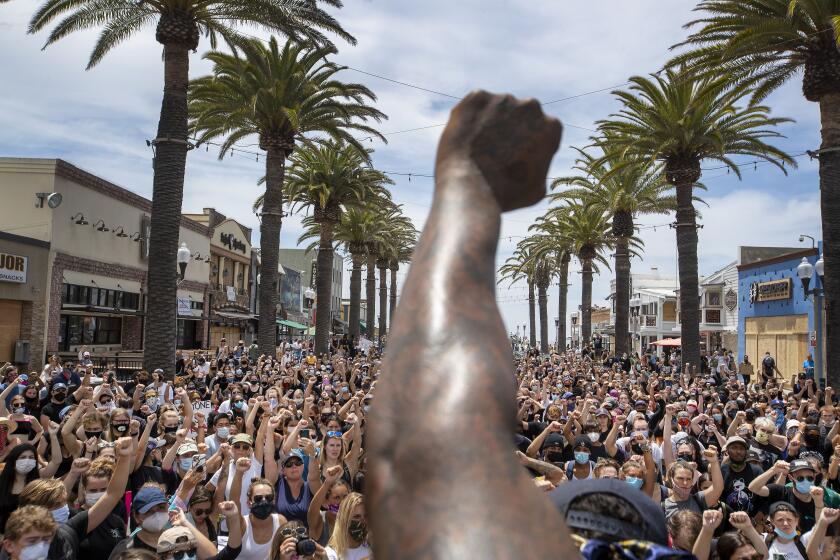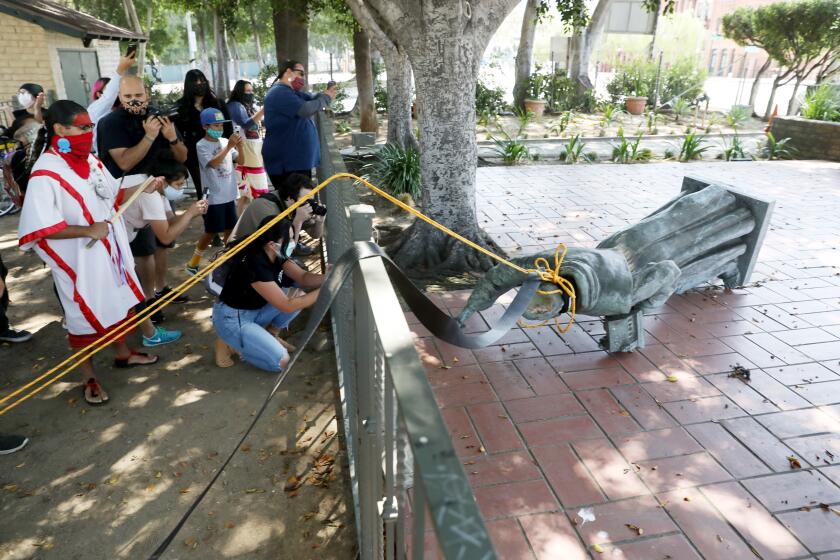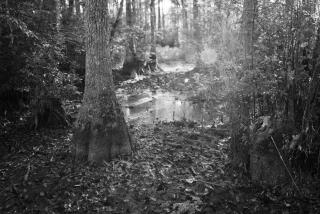Capturing a colorful Southern town where everything and nothing is Black or white
On Richard Grant’s first day in Natchez, Miss., he saw the antebellum mansions for which the town is famous but also the site of Forks of the Road slave market, which until recently had not merited public mention.
He also attended a fancy party hosted by a cookbook author, Regina Charboneau, who told him how progressive and tolerant the town had become, while in a room of her house hung a large oil painting of her son dressed in a Confederate uniform — a souvenir of the Pilgrimage, an antebellum pageant that still takes place every year. It was all part and parcel of a town that once staged the nation’s largest Ku Klux Klan rally but in 2016 elected a gay Black mayor with 91% of the vote. Grant’s mind was swimming, but he had one clear thought: “This was a place that needed writing about.”
In “The Deepest South of All,” Grant, a veteran travel writer whose books have ranged from East Africa to the Sierra Madre, plunges headfirst into this unique city of 15,000. “Natchez is as deeply Southern as it can possibly be,” says Grant, 56, over the phone, “but the more I got to know it, the more it seemed like a distillation of America, especially around the issues of slavery and race.”
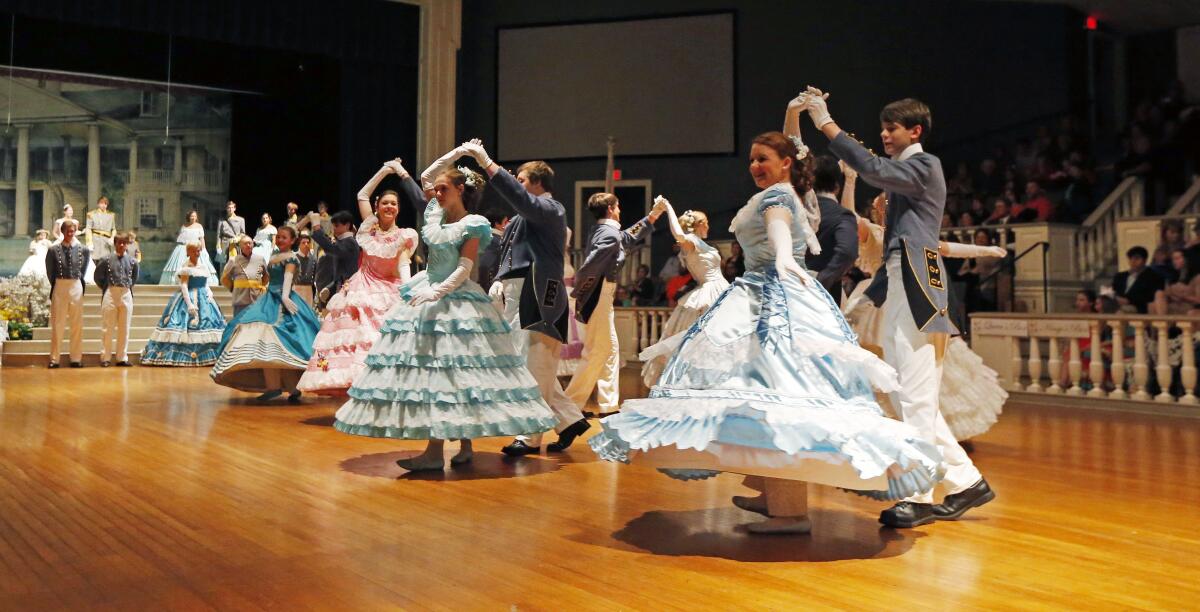
Though filled with wild and woolly tales, Grant’s travelogue also posits Natchez as a stand-in for the nation and a guidepost pointing the way forward. He doesn’t shrink from describing the town’s annual Tableaux, a politically incorrect cringe-fest central to the Pilgrimage, but he notes some genuine and profound changes over the last decade.
S.A. Cosby’s “Blacktop Wasteland” stakes out territory in undersung places — and sings too of the complex lives of Black men.
“Forks of the Road is now in all the tourist brochures, and everyone in town involved in tourism finally wants the Black history included,” he says. “They know they can no longer peddle the ‘Gone With the Wind’ version of Natchez. There’s even talk of perhaps ending Pilgrimage, which would have been unthinkable five years ago.”
That’s definitely progress after 150 years of “white people insisting the slave had been happy and well cared for,” he says. “I’ve heard more honest, difficult conversation about race and slavery in Natchez than I had in America until very recently.”
Some of the city’s cognitive dissonance owes to its sheer eccentricity; Natchez can feel more like New Orleans than Charleston. The book opens at another party, where we meet:
a) a man who lives part time in a former mental hospital with — among other squatters — a magician, an Andrew Jackson impersonator and two fraudulent bishops.
b) a woman who approvingly relates an anecdote about the only white doctor in Natchez willing to treat Black patients during the Depression; he took in the son of a Black woman who died in childbirth, named the boy Rooster and raised him on the back porch.
c) Versace, a beagle-pug mix with truly terrible gas.
The people (if not the dog) spoke openly around Grant, he says, in part because they’re naturally hospitable and in part because he is a British expat, not a Northerner — but largely because his previous book, “Dispatches From Pluto,” about relocating to small-town Mississippi, had been a bestseller in the state. “They felt they knew who I was,” Grant says.
Former U.S. Poet Laureate Natasha Trethewey always wrote of public pain and private struggle. Her memoir, “Memorial Drive,” lets her mother speak.
Immersing himself in the community created some complications. “On one level you’re operating friend to friend,” he says, “but the writer part of you has a notebook in your pocket and is thinking, ‘You must run to the bathroom and write that down.’”
Grant came away with a surfeit of material. Use a random number generator and you’ll always land on a page that will leave you chuckling, lifting your jaw off the floor or shaking your head in dismay.
I did just that and was sent to Page 59, which depicts interpretive signs newly installed at historic sites that finally acknowledge the toll of slavery, using period drawings like one of “two enslaved women with babies being whipped in a cotton field by a white man in a top hat.”
Next: Page 113. A tour of a house owned by an openly gay, openly neo-Confederate couple. David Garner, “a tiny man with an immaculately trimmed white mustache, … had two wings of white hair that he swept up together and hair-sprayed into a kind of pompadour.” Garner has filled his house with crystal chandeliers, gilded mirrors and “Venetian blackamoor sculptures depicting African males in decorative servile poses, often with their torsos bared … ‘You couldn’t buy a Negro after the war, but you could buy a miniature,’ David quipped.”
Grant spent much of 2017 in Natchez, always finding something new, like the Deacons for Defense, a black paramilitary group that beat back the Klan. But with so much material, he struggled over his first two drafts. He ultimately tied the book together with the unforgettable saga of Abd al-Rahman Ibrahima, an African prince sold into slavery in the 1800s.
“It seemed impossible to understand Natchez without understanding slavery, and my book needed a narrative engine, a story to tell from start to finish,” Grant says, “but I also felt that by telling Ibrahima’s story in the present tense and my own experiences in the past tense I could suggest something about the way time operates in Natchez and how the past is almost more vivid than the present.”
Walter Mosley, Luis Rodriguez, the coiner of #BlackLivesMatter and others sketch a hopeful future for L.A. and the U.S. after George Floyd protests.
As an outsider holding up a mirror to an insular community, Grant tried to be “fair and empathetic,” but he admits “that’s a very subjective endeavor. I’m a little worried about how some people will react to the book.”
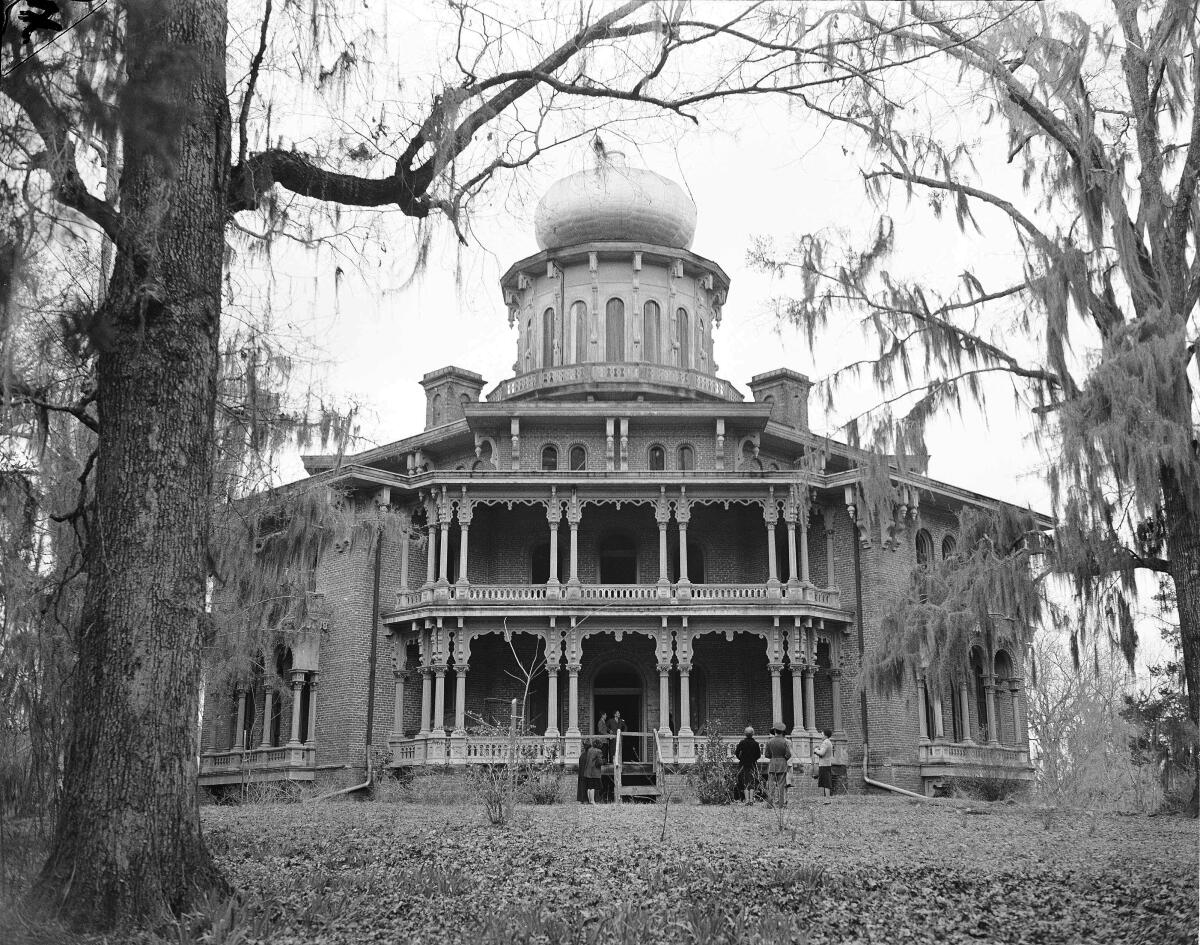
I called some townsfolk to find out. Charboneau, still awaiting her copy of the book, believes some locals may react poorly. “The truth hurts sometimes,” she says, but she trusts Grant. “Richard is not a sensationalist.” Still, she asks repeatedly about my impressions of the book, before concluding that, for a town reliant on tourism, “any press is good press.”
Jeremy Houston, a resident who gives tours of the town from an African American perspective, says Grant’s painful truths may inspire a much-needed shakeup.
“All those people were excited he was going to write a book about Natchez,” says Houston, who praises Grant as persistent and honest. “But the town is not just hoop skirts and antebellum houses glorifying Southern heritage. He exposed that, and in the aftermath of George Floyd and the current racial tensions, people will see we have to overhaul the whole system.”
In a town where the past isn’t even past, Houston celebrates progress but remains wary. “During Reconstruction, Black folks felt like we finally had a stake in American society,” he says. “We don’t want this to be a 10-year period of change in Natchez and then go back to where we were. ... The question of whether we can trust the white community is still up in the air.”
California confronts its racist, colonial past as statues fall, mascots are renamed and a town debates changing its name that honors a Confederate general.
More to Read
Sign up for our Book Club newsletter
Get the latest news, events and more from the Los Angeles Times Book Club, and help us get L.A. reading and talking.
You may occasionally receive promotional content from the Los Angeles Times.
